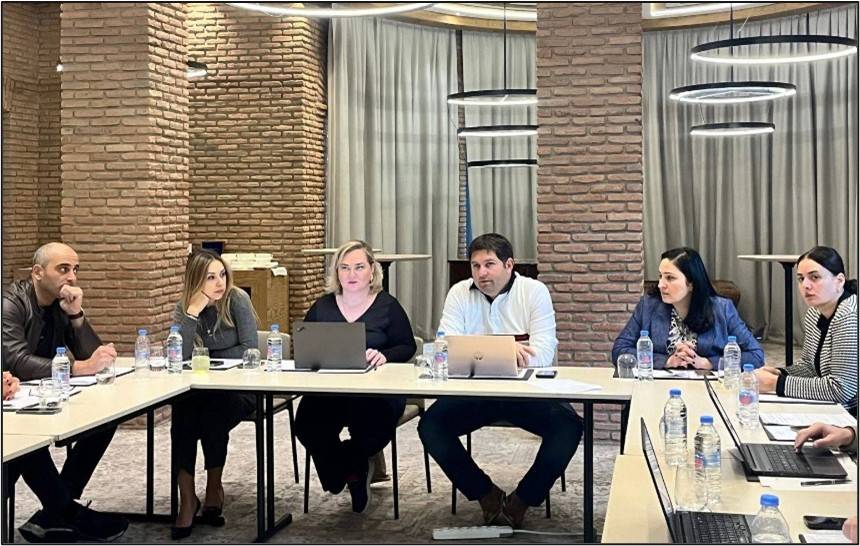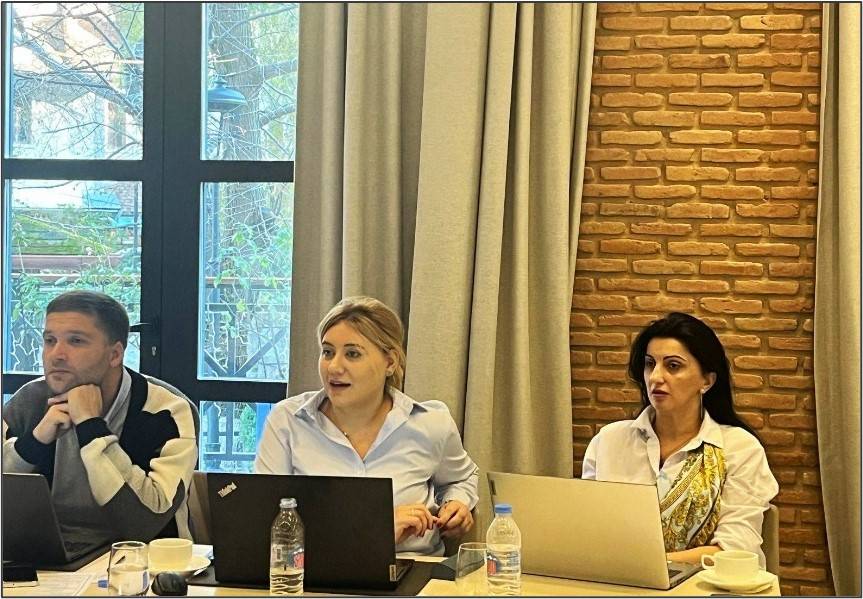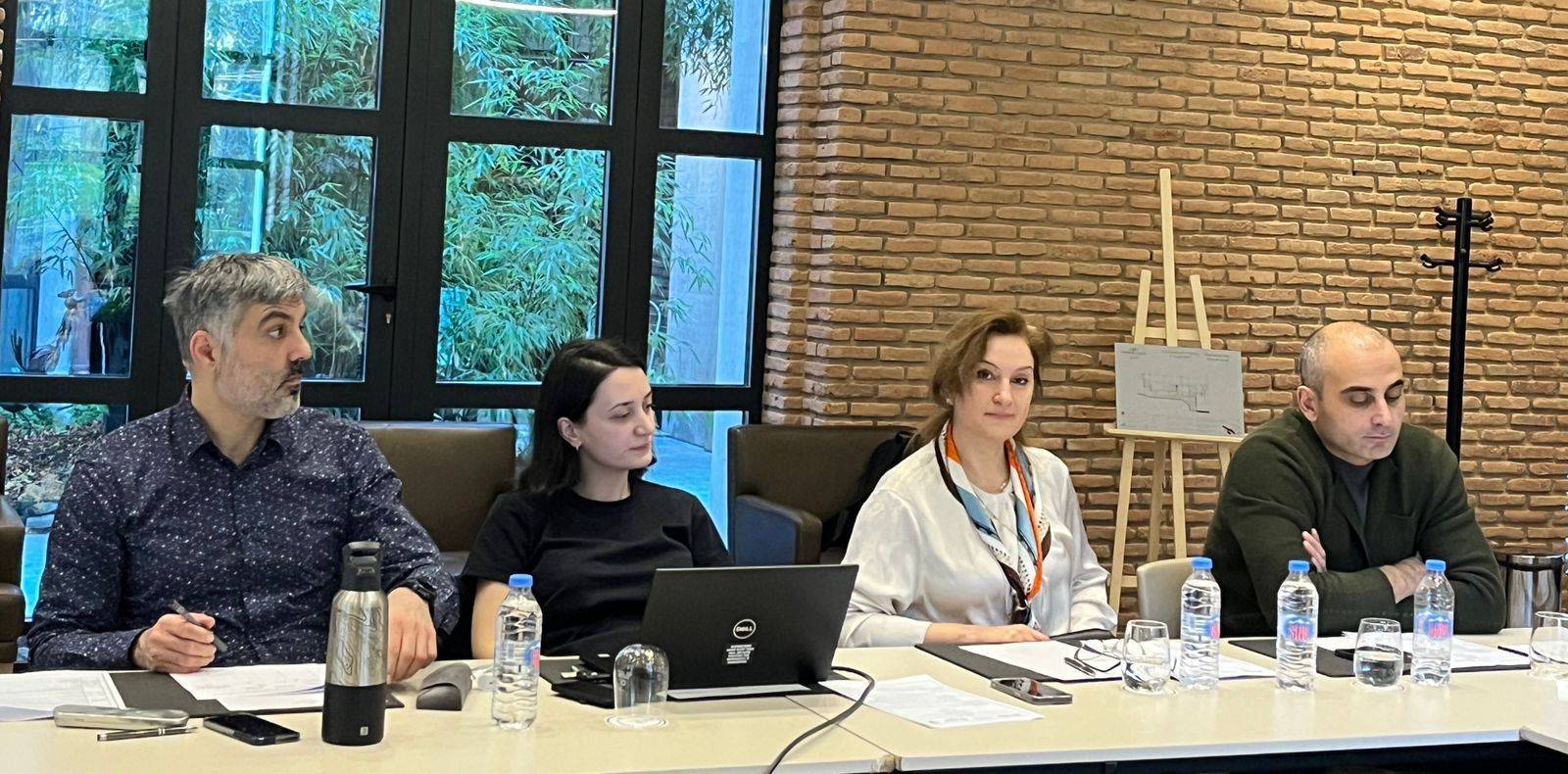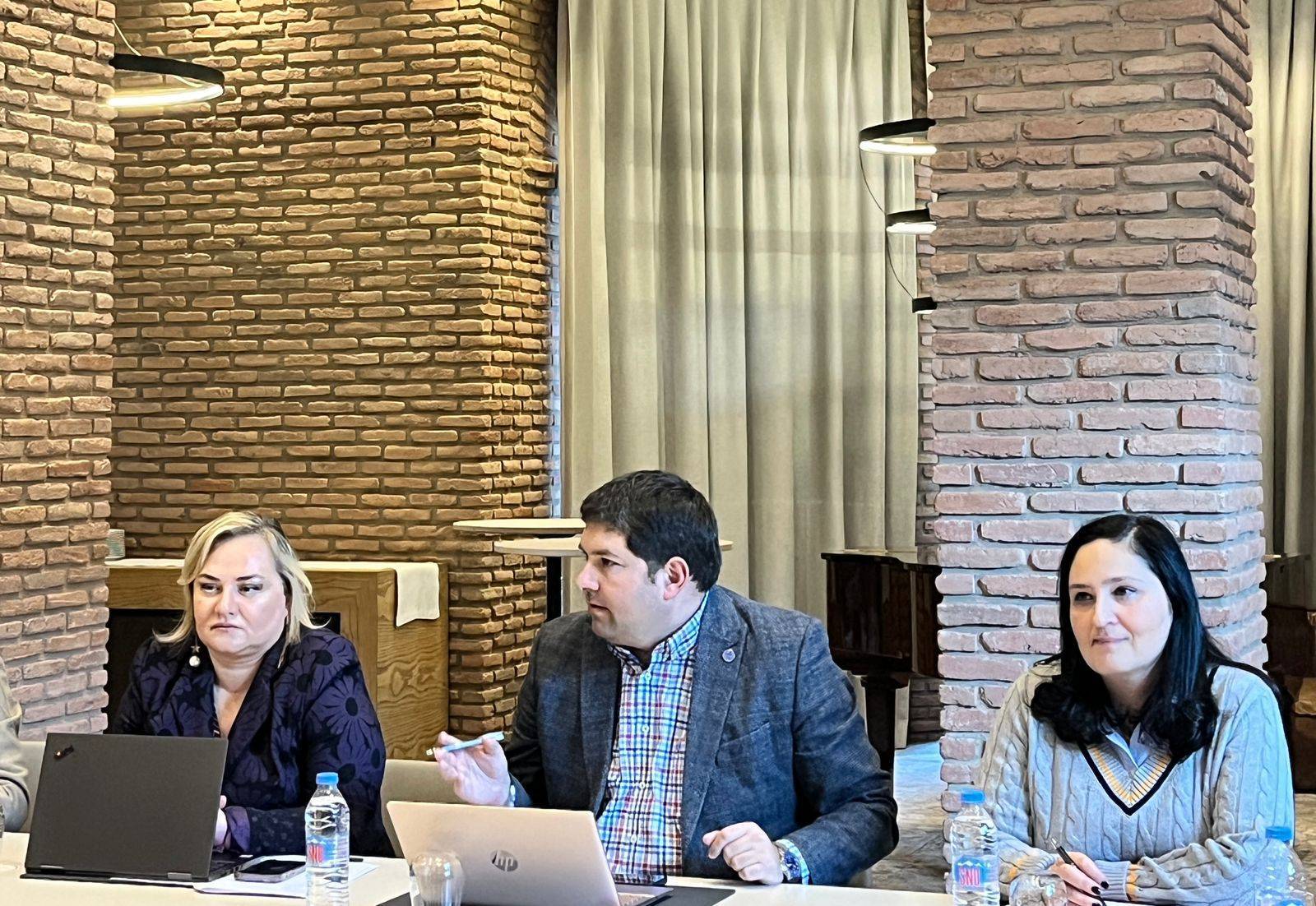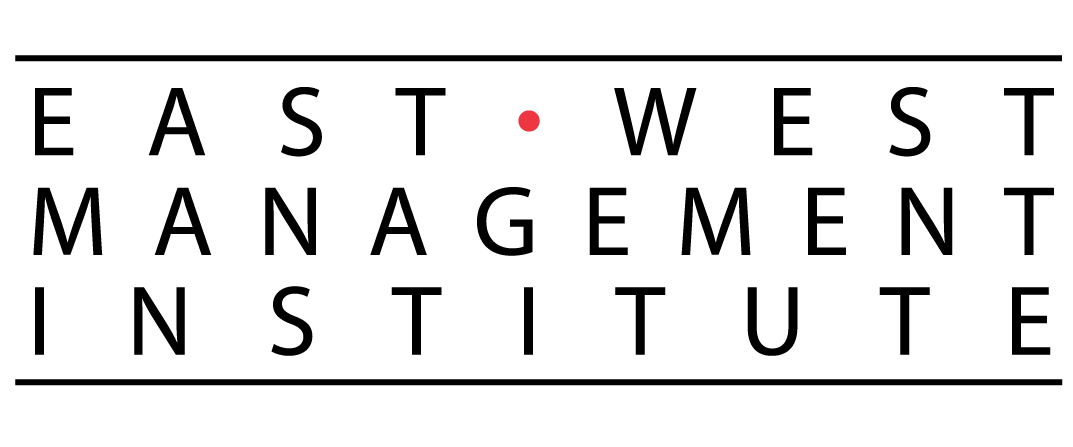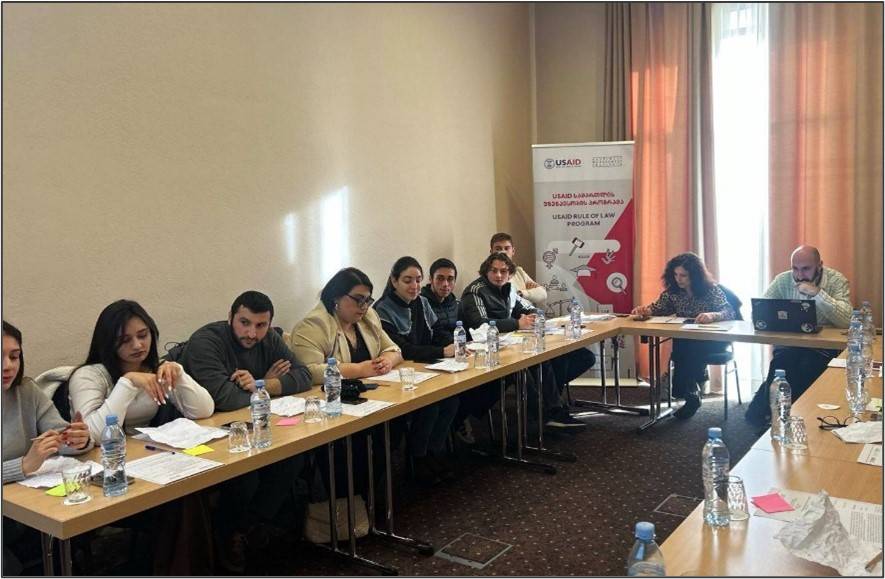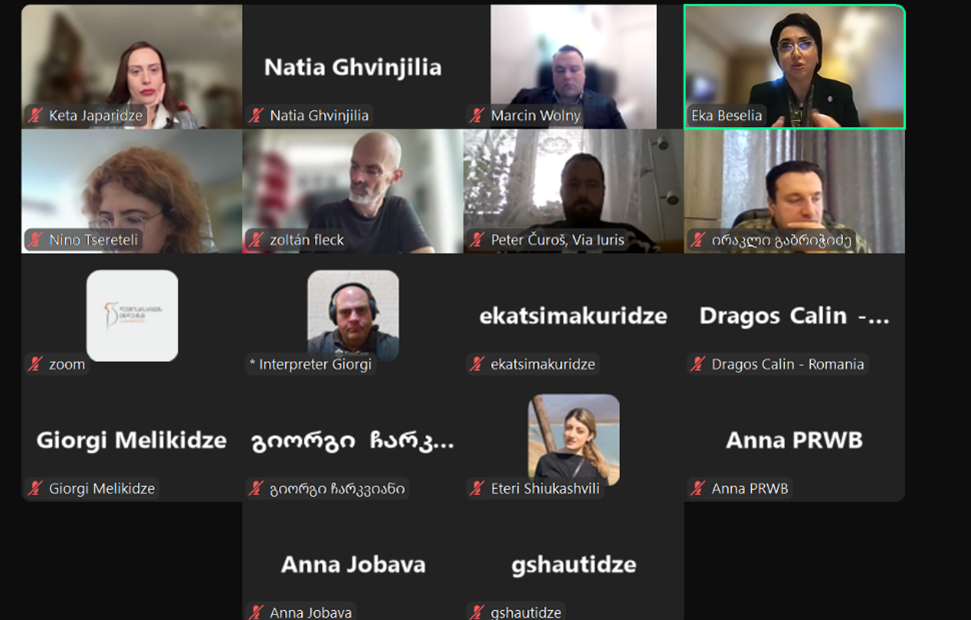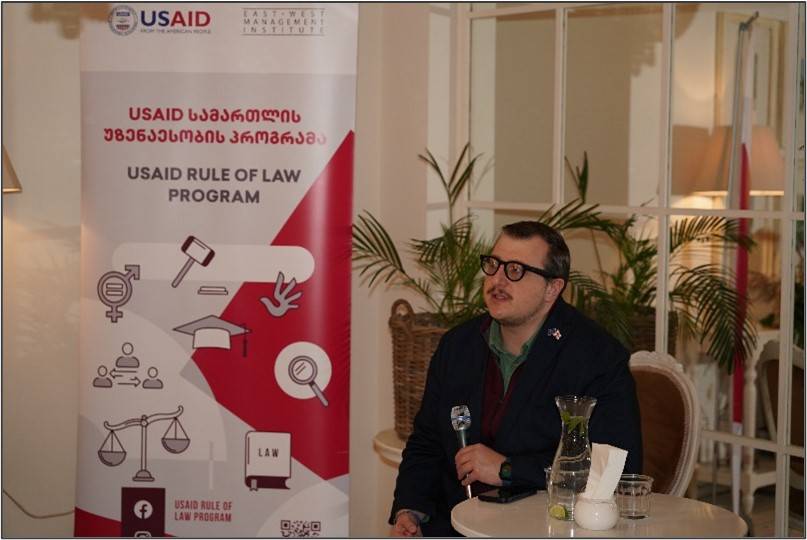Mediators Association of Georgia and Georgian Bar Association Collaborate to Enhance Labor Mediation Practices
On November 22-24, 2024, with support from the USAID Rule of Law Program, the Mediators Association of Georgia (MAG) organized a workshop in cooperation with the Labor Committee of the Georgian Bar Association (GBA). This workshop addressed challenging practices in labor-related mediation settlement agreements, and brought together 14 participants, including MAG board members with expertise in labor issues, and GBA Labor Committee members.
The event commenced with opening remarks by Irakli Kandashvili, MAG Chairman, and Ekaterine Lortkipanidze, Program ADR Specialist. They emphasized the importance of creating clear and enforceable mediation settlement agreements to streamline the judicial approval process and enhance the efficiency of labor dispute resolutions.
Irakli Kandashvili presented the details of recurring issues identified by MAG. According to MAG, around 40% of labor-related mediation settlement agreements submitted for court recognition in Georgia lack clear, legally enforceable text. This deficiency often necessitates additional hearings for judges to clarify details, resulting in the use of extra time and resources. Common issues include the lack of details on salary payment (such as the period of payment and whether the amount is net or gross), and specifics on job restoration.
The primary goal of the workshop was to develop and approve draft labor-related settlement documents that mediators and party representatives can use to ensure agreements are clear, comprehensive, and legally enforceable. The process was facilitated by Tamar Surmava, co-chair of the GBA Labor Committee. The participants worked on creating these templates, which will be shared by MAG and GBA with their members for consideration in future labor dispute settlements.
The outcome of the workshop is a comprehensive template that covers issues like reinstatement to a position, compensation for lost earnings, payment of compensation, relevant payment schedule, and whether the settlement is in cash or non-cash form. This document will be used by parties and mediators, ensuring that labor-related mediation settlements meet legal standards and reduce the need for additional judicial clarifications.
